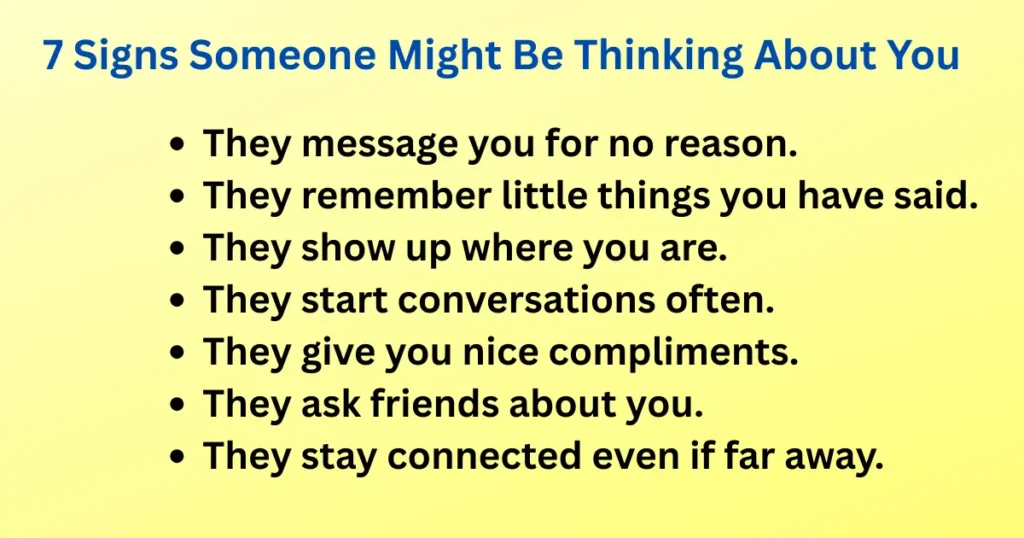Last updated on February 7th, 2026 at 06:53 am
How to stop thinking about someone can be a challenging journey for many. Do you keep thinking about someone—a crush, an ex, or someone who ghosted you? If you are searching to stop thinking about someone who occupies your mind 24/7, you are not alone. Obsessive thoughts can drain your energy, disrupt sleep, and even make you question your self-worth.
Good news: You can break the cycle. In this guide, you will discover:
✅ Why your brain fixates (hint: it’s biology + psychology).
✅ 15 actionable strategies to detach and reclaim mental peace—without pretending your feelings don’t exist.
✅ How to redirect your focus toward healing (even if closure feels impossible).
Whether you are struggling after a breakup, stuck on unrequited love, or just want to stop obsessing over someone who ignored you, these science-backed tips on how to stop thinking about someone will help you move forward for good.
It’s normal to find yourself constantly thinking about someone, whether it’s a crush, an ex, someone who ignored you, or a person you once loved deeply. These recurring thoughts can become exhausting, interfere with your daily life, and take a toll on your emotional well-being.

Why You Can’t Stop Thinking About Someone
Before learning how to stop thinking about someone, it’s helpful to understand why this happens. Here are common reasons:
- Unresolved emotions: Lingering love, pain, or confusion keep the mind attached.
- The “What if” loop: You keep replaying scenarios and wondering how things could’ve gone differently.
- Lack of closure: When a connection ends suddenly, your brain keeps trying to “solve” the emotional mystery.
- Infatuation or crush: Exciting feelings can turn into constant daydreaming.
- Reinforcement loop: The more you try not to think of someone, the more you do (psychologists call this the “white bear problem”).
How to Stop Thinking About Someone: 15 Practical Strategies

1. Acknowledge Your Feelings (But Don’t Dwell)
Instead of resisting your emotions, observe them mindfully. Say to yourself, “Okay, I am thinking about them again.” Accepting your thoughts without judgment makes them easier to release over time.
🧠 Tip: Journaling helps. Write down your thoughts, triggers, and feelings to gain emotional clarity on how to stop thinking about someone.
2. Practice Mindfulness Meditation
Mindfulness can calm mental chatter. Even 5–10 minutes daily of focused breathing or body scanning helps you center your attention on the present.
🧘 Try apps like Calm, Insight Timer, or Headspace to get started.
To learn more about the benefits of mindfulness meditation, check out this insightful article on why we practice mindfulness meditation.
3. Limit Social Media and Digital Contact
Unfollowing, muting, or blocking someone may feel harsh, but it’s often necessary to create emotional distance. Out of sight, out of mind applies here.
Read more: Social Media is Bad Pink: Protect Yourself from Hidden Dangers
📵 Avoid checking their posts or “just one peek.” Every view can reopen emotional wounds.
4. Engage in Intentional Distractions
Shift your focus to hobbies or activities that require active mental engagement:
- Learn a new language or musical instrument
- Join a book club or fitness class
- Volunteer for a cause you care about
- Cook, garden, draw, or explore creative outlets
5. Move Your Body
Physical activity releases endorphins, your brain’s natural feel-good chemicals. Exercise also helps reduce stress, anxiety, and intrusive thoughts.
🚶♂️ Go for a brisk walk, dance, hit the gym, or try yoga.
6. Challenge Your Thoughts
Ask yourself:
- Is this thought helpful or harmful?
- Is there evidence this person is worth my mental energy?
- Am I idealizing them or the situation?
This cognitive-behavioral approach helps interrupt obsessive loops and is essential in learning how to stop thinking about someone.
Related read: How to Control Your Mind: 10 Simple Strategies for Calm
7. Reflect on Why It Didn’t Work
Thinking about why the relationship or connection didn’t work out can bring clarity. Make a list of reasons, especially if you tend to romanticize the person.
8. Set Personal Goals
Redirect your energy into your own growth. Whether it’s career goals, learning something new, or building your confidence—personal progress is the best revenge.
9. Surround Yourself with Supportive People
Spend time with friends, family, or a support group. Social connection reminds you that life goes on and your world is bigger than this one person.
10. Talk to a Therapist
Sometimes obsessive thoughts are rooted in attachment issues, anxiety, or low self-worth. A mental health professional can help you unpack those patterns and guide your healing.
11. Visualize Letting Go
Use visualization techniques to imagine yourself cutting the mental cord. Picture placing your thoughts about this person in a balloon and watching it float away.
🌄 Visualization reduces mental attachment and brings a sense of closure, helping you learn how to stop thinking about someone.
12. Create a “No Contact” Rule After Breakups
If you have just ended a relationship, implement a strict no-contact period for at least 30–60 days. It helps reset your emotional system and reduce dependency.
13. Replace “What if” with “What Now”
Shift from thinking about the past to building your present. Replace:
- “What if they liked me back?” → “What can I do today that fulfills me?”
- “What if we got back together?” → “What qualities do I want in a healthy relationship?”
14. Allow Time to Help You Heal
Time doesn’t heal all wounds instantly, but it softens them. With each passing week, your attachment will fade—as long as you don’t keep reopening the wound.
🕰 Be patient. Healing is non-linear and that’s okay.
15. Practice Radical Self-Care
When your mind feels consumed, nurture your body, emotions, and spirit:
- Eat well and stay hydrated
- Get consistent sleep
- Watch uplifting movies or listen to comforting music
- Spend time in nature
- Speak kindly to yourself
Bonus: 7 Signs Someone Might Be Thinking About You Too
You might wonder if you are the only one feeling this way. While not foolproof, here are signs someone may still think of you:
- They reach out frequently without a clear reason
- They remember small things you said
- They show up at places you visit
- They initiate conversation often
- They give unexpected compliments
- They ask others about you
- They remain emotionally present even after distance
🤔 Remember, don’t rely on these signs to justify staying emotionally stuck. Focus on your healing.

Conclusion: You Can Take Back Control of Your Mind
Now that you know how to stop thinking about someone, remember this:
- These thoughts won’t disappear overnight, but they will get weaker every day
- Your mental peace is worth more than any person
Start today with:
🔹 The 30-day no-contact challenge
🔹 5 minutes of daily mindfulness (try apps like Headspace)
🔹 One small act of self-care (go for a walk, call a friend)
Healing isn’t about forgetting – it’s about remembering yourself first.
Your turn: Which strategy will you try first? Comment below to make yourself accountable!

